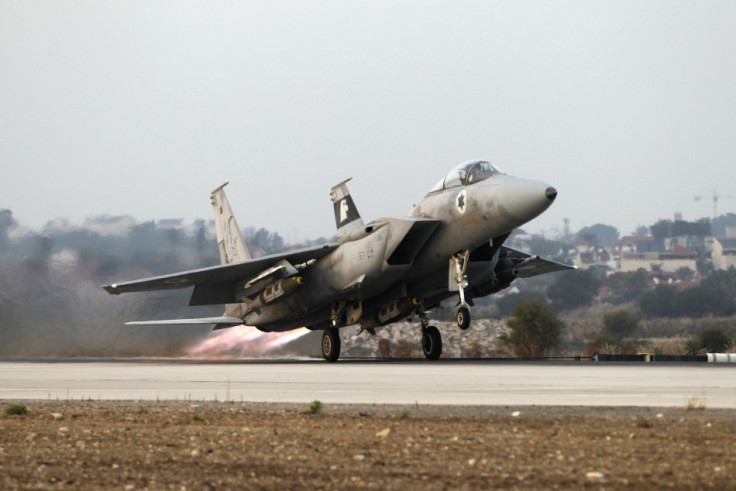Israel's swift reprisal after its F-16 shot down raises regional tensions
IDF's aerial raids decimate Iranian and Syrian positions as Israel quickly steps up its response.

Israel is swiftly stepping up its air raids in Syria targeting Iranian interests in a sharp escalation of regional tensions, after one of its F-16 fighters was downed on Saturday (10 February). In "large scale" retaliatory attacks inside Syria, at least 12 sites — both Iranian and Syrian targets — were destroyed by Israel.
At first, an Iranian drone was intercepted by Israel early on Saturday and it was found the unmanned aircraft originated from Syrian soil. Following that, the F-16 fighter jet operated by Israel Defense Forces (IDF) was downed reportedly by Syrian anti-aircraft missiles.
This is thought to be the first time Israel has lost one of its aircraft in the long-running Syrian conflict, though the country had carried out several aerial attacks in the past.
The two pilots of the F-16 are now in stable condition and were taken to hospital. They were ejected from the plane as it came down crashing in northern Israel. Syrian state news agency claimed one more jet was shot down but the IDF denied the claim. The IDF sent eight fighter jets in the latest round of air strikes.
Israeli military spokesman, Jonathan Conricus said: "The Syrians and Iranians, from our point of view, are playing with fire. The event is still ongoing; it is by no means behind us."
Israel's escalation of the aerial campaign is being strongly condemned by Iran and Syria, with both issuing warning that Israel's actions are bound to face stinging retaliation.
"Reports of downing an Iranian drone flying over Israel and also Iran's involvement in attacking an Israeli jet are so ridiculous," Iran's foreign ministry spokesman Bahram Qasemi said, according to the state Tv.
Concerns have also emerged that Israel's rapid response could push Russia, which has cordial relations with both Iran and Israel, to take supporting stance with Tehran. Moscow has called for a restraint from both the sides.
"We urge all parties involved to exercise restraint and to avoid any actions that could lead to an even greater complication of the situation," said Russia's foreign ministry. "We consider it necessary to unconditionally respect the sovereignty and territorial integrity of Syria and other countries of the region."
Israeli Prime Minister Benjamin Netanyahu also spoke to Russian President Vladimir Putin over the situation and defended the country's right to respond.






















